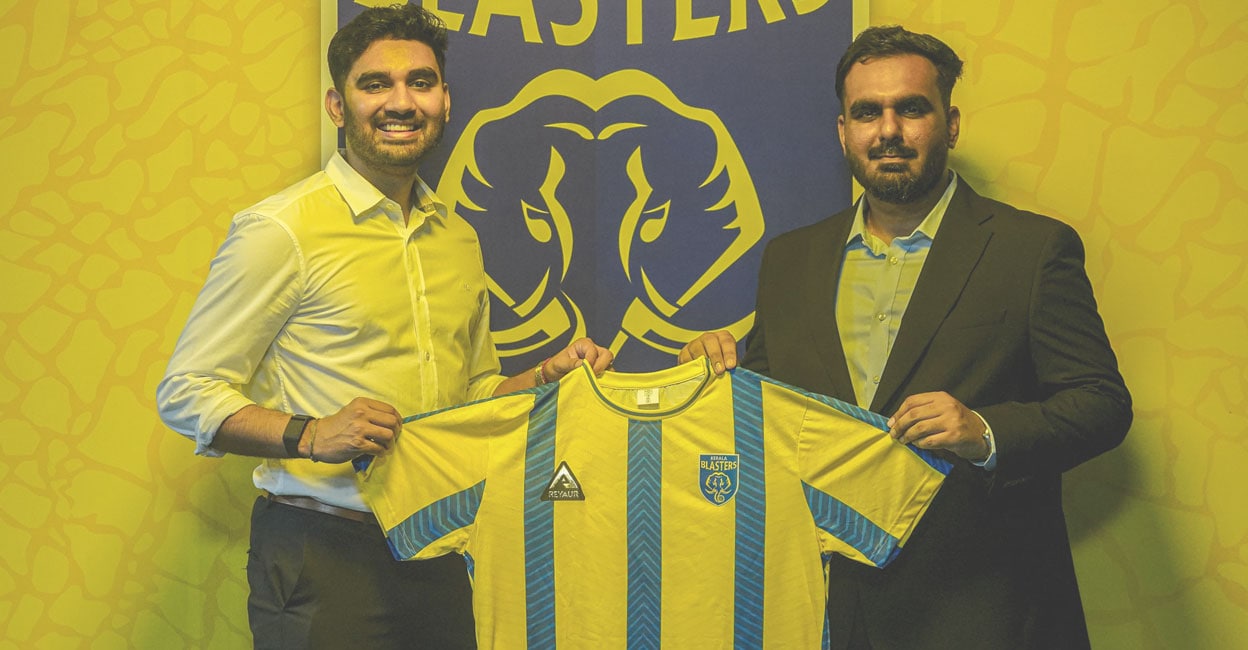Kerala Blasters not profitable yet, but in a better place. CEO on sustainability, stadium plans

Mail This Article
Kerala Blasters have been on rent at their home for ten seasons and might prolong the stay because constructing a stadium is not high on the agenda of the Telangana-based ownership. Instead, the focus is on making smaller investments to turn the club sustainable without compromising its ethos, said Kerala Blasters CEO Abhik Chatterjee in a freewheeling chat with Onmanorama.
"An own stadium is something we wish to have. But is that immediate on the plans? No," Chatterjee said. "A stadium project would require anywhere between Rs 350 to Rs 600 crore. Most of the ISL clubs, apart from Jamshedpur, don't have their own stadium... unless certain partnerships take place or the landscape changes.. you never say no," Chatterjee said.
Any other development plans? "Are we looking to create some infrastructure on our own? Yes, we are interested. We are evaluating it. Maybe it will start at a smaller level. Any investment into the club is better served in the form of players or creating maybe smaller investments that will maybe help us reach a point wherein we can use some of the money that is coming into the club to be reinvested into the club."

Home maintenance
The Blasters play their home matches in the Indian Super League at the Jawaharlal Nehru International Stadium at Kaloor in Kochi. The Greater Cochin Development Authority, headquartered at Kadavanthara in Kochi, owns the venue. The Blasters' training facility at Panampilly Nagar School Ground is state-owned.
"Playing at the JLN Stadium (Jawaharlal Nehru Stadium) is not cheap. We pay a very, very, very handsome sum of money to be here. There is a huge investment made toward match-day costs," Chatterjee said. According to reports, the Blasters pay Rs 8 lakh as rent for every home match. "It is more than that," Chatterjee said. "When people think that 'Oh, Kerala Blasters is making a lot of money, they are lying on a pile of cash', it is far from the truth."
Aim: Be sustainable
Chatterjee held "key leadership roles at NorthEast United, Fateh Hyderabad AFC and Odisha FC" before joining as CEO of Blasters in October. Based on his experience in the game, Chatterjee understands what it means to be in the football business in India. "I don't think any ISL club is profitable... clubs are trying to figure out how to be sustainable. Every owner or person who has invested in the ISL must be commended because they have invested in Indian football."
Is Kerala Blasters financially stable yet? "We are in a better place. But are we profitable? No," Chatterjee said. "Everybody is collectively trying to figure out how to make it sustainable so that what you earn can be invested back into the club. Right now, what you are investing is more than what you are getting back.
"Every club will have a unique idea of how to do it; I can only speak for Kerala Blasters. We are lucky to have such a strong and passionate fanbase. We are lucky that we can do and experiment in certain areas that other clubs cannot. That does not mean we are business-minded. We are trying to make a model where we are investing whatever that comes in, back into the club.
"But I have not seen this ownership step back when it comes to investment in the club," Chatterjee said.

Cost of success
Despite their enviable fan following, the Blasters are yet to win a silverware. They reached the ISL final on three occasions, twice losing on penalties. However, Chatterjee is confident that the club's football project is on the right track. "I do understand that success in football is measured in trophies. I have just been here for a month-and-a-half, but I can already feel it. From my last experience with a club.. in Odisha, I know that you will win something when you are least expecting it. That is what happened there. Sometimes, it is not about how much you invested.
"Sometimes you go through a bad patch like we are right now, but that doesn't mean everybody is incapable. We have been in three finals, and if one of those finals were won, people would be telling a different story. Fine, fine margins. We need to find what will take us over the line. It is not like we need gigantic amounts of money to take us over the line. I think we are on the right track; we need a bit of luck, we need to be invested in the idea of having success and we need the right people who believe we will get there. If we stay on this path, I can say with conviction that it is around the corner because there are just too many good people here with the right intentions for it to not happen."

On transfers, player development
It was a shocker to find the Blasters on a 1-star rating in the Academy Accreditation list published by the All India Football Federation. One of their immediate rivals, Bengaluru FC, received a five-star, while two Kerala clubs, Gokulam and Parappur, got three stars. Chatterjee explains: "On the face of it, when you look at the stars, it matters. But at the heart of it and what we are actually developing, there can be no doubt that the progression we have been making through the age groups to the reserves and the first time is among the best in the country."
According to the CEO, 'academy accreditation' is optional for ISL and I-League clubs and involves paperwork that does not impact tournament eligibility or club licensing. "Most of our resources go to the reserve team, but when it comes to academy accreditation, the reserve team doesn't get any points. So, the reserve team is completely left out of the loop.
"We have always emphasised youth development; I don't think there is ever any doubt. We will place more focus on it (academy accreditation) when it gains relevance in the future, as in when it becomes compulsory as part of club licensing.
"(Right now) there is a 90% player progression happening from our U15s to U17s and 45% from our U17s to the reserve team. Four of our U-20 players have gone out on loan to the Super League Kerala teams to gain minutes. Many of our reserve team players are making their way up to the first team; Korou (Singh) is just a recent example. Saheef, Sachin, Azhar Aimen... and a lot of the reserves make it to the first team practice sessions when the coach wants to see them. So that progression is never in doubt."
However, when it comes to player signings, Chatterjee prefers not to divulge much, which he says is the best approach in India's inflated football market. "But I would like to say, there are discussions we have had and there is a strategic position we will take, and it is imminent. You'll have to wait and watch. Karolis (Skinkys, Sporting Director of Blasters) has been here long enough; he knows what to do. I'm very confident. There will be actions that will benefit the club, short-term and long-term."


